It looks like Turkey and Brazil might be making the same mistake that France made in 2003, which still serves as the textbook example of an old friend of mine’s admonition regarding marital disputes: Being right is overrated. Clearly subsequent events vindicated France’s position on the Iraq invasion. But anyone who thinks that France did not pay a price for actively lobbying to shoot down the U.N. resolution authorizing it — including then-Foreign Minister Dominique de Villepin’s ill-advised tour of African capitals — is mistaken. The move demonstrated France’s ability to build consensus among a strategically weightless constituency, but led […]
The Americas Archive
Free Newsletter
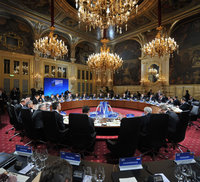
Last week, at West Point, President Barack Obama sounded a familiar theme that all recent U.S. presidents have lamented, when he said, “The burdens of this century cannot fall on our soldiers alone. It also cannot fall on American shoulders alone.” Obama also reiterated time-honored propositions in his promise to “be steadfast in strengthening those old alliances that have served us so well,” and his desire “to build new partnerships, and shape stronger international standards and institutions.” The just-released 2010 National Security Strategy of the United States continues this approach, declaring, “Alliances are force multipliers: through multinational cooperation and coordination, […]
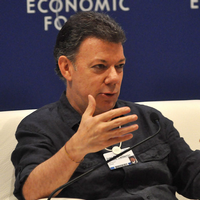
BOGOTA, Colombia — Colombians will head to the polls on Sunday, May 30, in what has unexpectedly become not only the closest presidential race in years, but one that is too close to call. The neck-and-neck contest pits outsider Antanus Mockus, a quirky intellectual and former two-time mayor of Bogotá, against former Defense Minister Juan Manuel Santos, a veteran political mover-and-shaker and heir to the outgoing conservative President Alvaro Uribe. All polls suggest that neither of the two contenders, in a field of six main candidates, will gain more than the 50 percent of votes needed to avoid a second-round […]
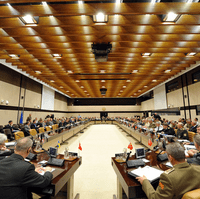
MITROVICA, Kosovo — Back in 2003, when U.S. officials optimistically predicted that American forces would be “greeted as liberators” by the Iraqi people, their minds probably conjured images of the mass euphoria that welcomed NATO troops to Kosovo in 1999. During that war, cheering Kosovar Albanians chanted “NATO, NATO!!” as the U.S.-led military force entered the territory after pushing out Serbian forces with a 78-day bombardment. A NATO-led peacekeeping force known as KFOR has remained here ever since, helping the fledgling country get on its feet. But NATO, facing demanding commitments in Afghanistan and potentially elsewhere, is itching to pull […]
I wanted to follow up briefly on this post, in which among other things I mentioned that Stateside criticisms of President Barack Obama don’t match the sense I get as an offshore observer of how he’s viewed by a global audience. A good comparison here is Brazil’s President Luis Inacio Lula da Silva. At the end of his second term, Lula is enjoying stratospheric popularity levels that most leaders could only dream about as they prepare to leave office. And to top it all off, he just sealed a fuel swap agreement with Iran that most Stateside observers have been […]
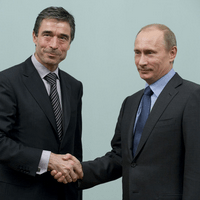
Last week, the group of experts assisting with the drafting of NATO’s new Strategic Concept released their final report, entitled “NATO 2020: Assured Security, Dynamic Engagement.” In anticipation of the planned Strategic Concept, which is scheduled for approval at this November’s NATO heads-of-state summit in Lisbon, the experts’ report recommends how the alliance should define its purpose, nature, and fundamental security tasks in the contemporary and future security environment. Since last fall, the 12-member group, led by former U.S. Secretary of State Madeleine Albright, has convened a series of public and private meetings in various countries to discuss international security […]
If you’re looking for insight into the lessons learned from the global financial crisis, you could do a lot worse than this Walter Russell Mead essay. Mead nails down a bunch of thoughts that have been swirling in my head recently, that I haven’t had the time or the talent to express as articulately. In particular, the idea that the Battle of Financial Markets, as he calls the initial stage of the crisis, has now given way to the Battle of State Finance. By that he means that the global economy’s theoretic backstop — i.e., the state’s capacity to rescue […]
If you haven’t read Thomas P.M. Barnett’s latest WPR column, I recommend you do. It’s as thoughtful and thought-provoking a take on President Barack Obama’s domestic and international political horizons as any I’ve read recently. That’s mainly because Barnett neither dismisses nor exaggerates his targets, whether they be Obama’s accomplishments or failures, or the populist backlash to some of the latter. It’s not so much a critique of Obama, as it is an assessment of how his skills and shorcomings fit in structurally to the tasks at hand. As someone whose natural approach to problem-solving is to toss away everything […]
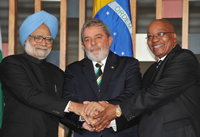
Much ink has been spilled discussing the nuclear fuel swap deal that Brazil and Turkey brokered with Iran last week. The pundits have focused on whether the deal will resolve the standoff over Iran’s nuclear program, or whether Tehran is simply playing for time, as well as what the deal says about the growing prominence of Brazil and Turkey. Yet the real meaning of the nuclear deal has gone largely overlooked: The dominant trend of the early 21st century is the rise of democratic powers to positions of regional and even global influence. Of course, the most prominent rising power, […]
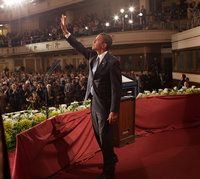
As somebody who voted for President Barack Obama, I am surprised to find myself believing that he is slated to be — and more so, should be — a one-term president, a possibility that Obama himself has already broached publicly. It’s not any one thing he has or hasn’t done that has led me to this admittedly premature conclusion. Rather, it’s a growing realization that everything Obama brings to the table in terms of both deeds and vision suggests that history will judge him to be a transitional figure. He is a much-needed leveling-off from Bush-Cheney’s nosebleed-inducing foreign policy trajectory, […]
To no one’s surprise, least of all the European Union, Britain’s new foreign secretary, William Hague, opted to visit Washington before setting foot in Brussels. There were several reasons why the Washington trip had priority. One was to reassure the Obama administration on the coalition’s continued commitment to the Afghan conflict. The Liberal Democrat Party, with its left-of-center roots, is viewed somewhat warily in Washington. The party opposed the Iraq war, but views the Afghan war with qualified acceptance. But as strong Europeanists, the Liberal Democrats are less enthusiastic about being tied too closely to the United States. Prior to […]
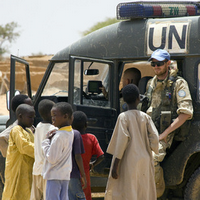
A subtle evolution of United Nations peacekeeping operations is underway. If the first of these missions kept an agreed-upon peace, and later missions sought to make peace, several countries now use these operations to advance their foreign and economic policy agendas, and raise their global profile. This shift, selective as it is to date, may potentially raise the standard of conduct in U.N. peacekeeping operations increasingly fraught with charges of criminal behavior, corruption, lack of accountability, and general ineffectiveness. However, there are significant downsides to this approach. The global movement of people, information, goods, and services creates new opportunities, but […]
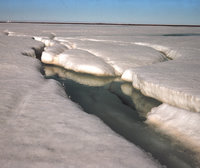
For the first time since American and Soviet missiles silently faced off across the vast, icy expanse of their northernmost Arctic territories during the Cold War, the Arctic is again becoming a strategic concern. As global climate change forces both permanent and seasonal sea ice to recede, the world is gaining what amounts to a brand new ocean — one that has never been fished, rarely navigated, and has waters that are thought to be rich with natural resources. In 2009, the United States Geological Survey estimated that the Arctic contains over 90 billion barrels of oil, 1,669 trillion cubic […]
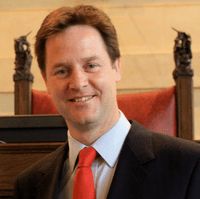
During Britain’s recent parliamentary elections, Liberal Democrat leader Nick Clegg argued that the U.K. should scrap the proposed “like-for-like” replacement of its submarine-based nuclear deterrent, known as Trident, with a similar modernized system. As a possible alternative, Clegg’s party has suggested fitting Britain’s Astute-class submarines with nuclear cruise missiles, or in the event of a crisis, arming these same submarines with Trident missiles. Although such proposals may lead to financial savings, they are deeply flawed and could have far-reaching strategic and political implications for both the United Kingdom and its NATO allies. With Clegg now part of Prime Minister David […]
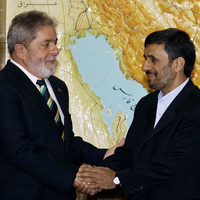
Yesterday’s joint declaration by Brazil, Turkey and Iran does not end the Iranian nuclear crisis. With luck, it may mark the beginning of the end, though it will need to overcome some major hurdles even to achieve that goal. In their trilateral statement, the three governments propose that Iran “deposit” 1,200 kilograms of its low-enriched uranium in Turkey pending receipt within one year of 120 kilograms of more-highly enriched uranium suitable for Tehran’s Research Reactor (TRR). Since early last year, the Iranian government has been seeking to acquire specially enriched uranium fuel for the TRR. The reactor, built by the […]
The U.S. Embassy in Ecuador recently announced that it had delivered $1.2 million of donated military equipment to the Ecuadoran military, a year after Ecuadoran President Rafael Correa ordered the closing of a U.S. air base in the country. In an e-mail interview, Michael Shifter, president of the Inter-American Dialogue, explains Ecuador’s bilateral relations with the U.S. and its regional foreign policy. WPR: How has the closing of the Manta air base impacted U.S.-Ecuador relations, and in particular military-to-military cooperation? Shifter: The closing of the Manta base was long expected and therefore its effect on U.S.-Ecuadoran relations has been minimal. […]
